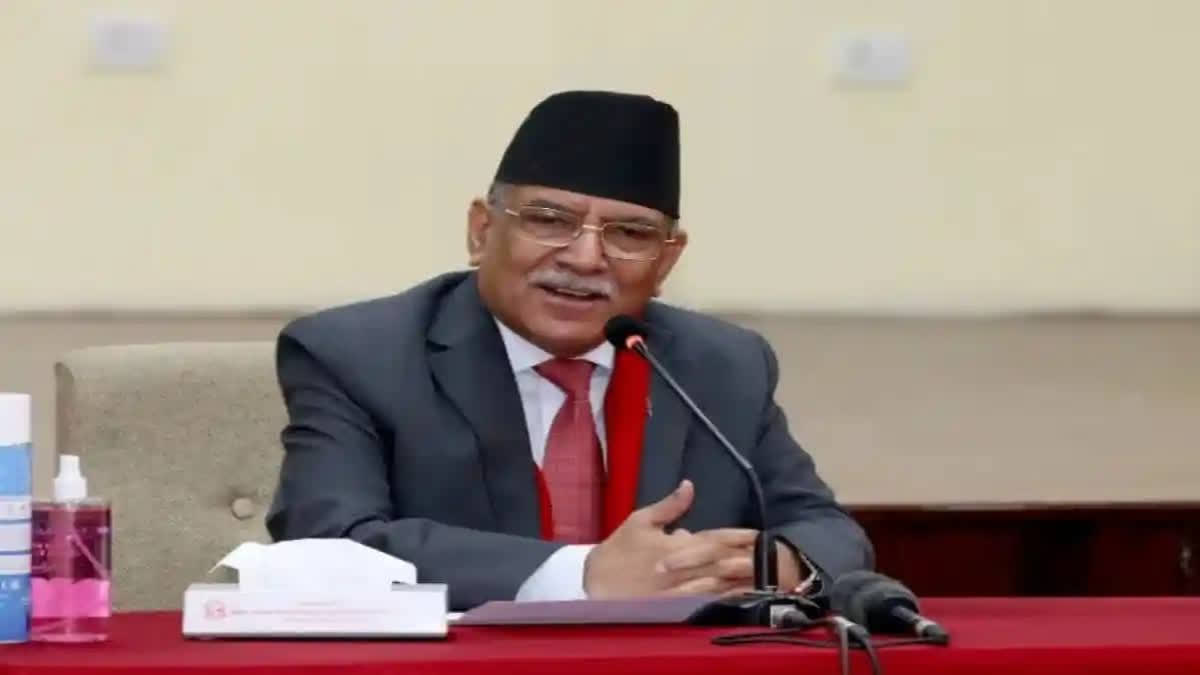New Delhi: In what is yet another manifestation of government instability in Nepal, a flurry of political developments in Nepal in recent days has sparked speculations about the future of Pushpa Kamal Dahal as the Prime Minister of the Himalayan nation.
On Saturday, KP Sharma Oli, the leader of the Communist Party of Nepal – United Marxist Leninist (CPN-UML), held a closed-door meeting with former Prime Minister and president of the opposition Nepali Congress Sher Bahadur Deuba. Then, on Monday morning, Oli held a meeting with Dahal, who is the leader of the Communist Party of Nepal – Maoist Centre (CPN-Maoist Centre).
Following the meeting on Saturday, Deuba convened a meeting of all office-bearers and former office-bearers of the Nepali Congress on Monday. Till the time of filing this report, it was not known what transpired in the meeting.
It may be recalled that in March this year, Dahal severed ties with his then-coalition partner Nepali Congress and invited the CPN-UML to be part of what became a Leftist coalition. The Nepali Congress then decided to sit in the opposition. It is worth mentioning here that the CPM-UML and the Nepali Congress are the two largest parties in Nepal and Dahal will be dependent on either of these two parties to lead a coalition government.
However, Oli is reportedly unhappy with the current arrangement. Only weeks back he had criticised the annual budget presented by the Dahal-led government as a “Maoist budget”. Now, he has held a closed-door meeting with Deuba.
Dahal, too, is not happy with the current arrangement. Following the Oli-Deuba meeting, a report in the Kathmandu Post cited an opposition leader as saying that Dahal himself has acknowledged that the current ad hoc politics in the country is unsustainable and that he could do precious little, but keep shuffling ministers.
Meanwhile, regarding the Oli-Dahal meeting on Monday, the Himalayan Times cited Manohar Timilsina, a communication expert in the Prime Minister’s Office, as saying that the contemporary political situation came up for discussion. According to Timilsina, the discussion also revolved around how to make government functioning more effective.
However, all these developments have only resulted in sparking speculations about the future of the current government led by Dahal. “And the Deuba-Oli meeting taking place amid Oli’s public statements that he is not happy with the government, suggests something’s cooking,” the Post report quoted the opposition leader as saying.
The question arises as to what all these developments mean for immediate neighbour India. “There is an inherent instability in the current regime,” Harsh V Pant, Professor of International Relations with King’s India Institute at King’s College London and Vice-President (Studies and Foreign Policy) at the Observer Research Foundation think tank, told ETV Bharat. “India needs a stable government in Nepal to carry out the bilateral agenda. The challenge is taking forward the bilateral agenda.”
At the same time, Pant added that India has been working with whichever government has been in power in Kathmandu. “Dahal had at one point in time strongly anti-India,” he said. “He has since moderated his views on India and New Delhi has worked with his government as well.”
Another development under the current Leftist dispensation has been Kathmandu’s resumption of talks with Beijing for the implementation of Chinese President Xi Jinping’s pet Belt and Road Initiative (BRI) projects in Nepal.
It is worth mentioning here that Nepal and China had agreed to sign the BRI implementation plan at the earliest when Nepali Deputy Prime Minister and Foreign Minister Narayan Kaji Shrestha visited Beijing in March this year. The decision was taken during delegation-level talks between Shrestha and his Chinese counterpart Wang Yi. Though no specific date was mentioned, reports suggested that it could happen during any high-level visit between Nepal and China.
